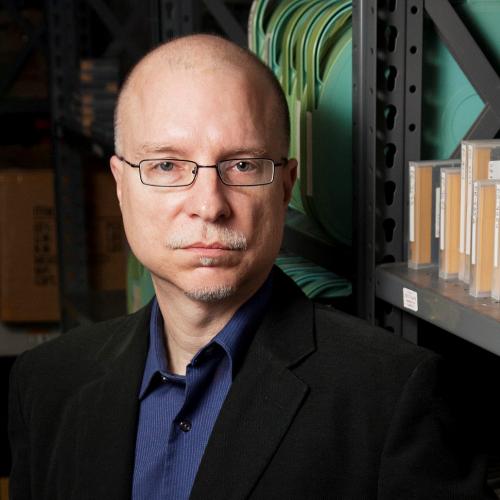PhD student Jack Brighton shared his expertise in audiovisual archives at the 105th Annual Meeting and Conference of the Association for the Study of African American Life and History (ASALH) on September 3. The theme of this year's conference, which is being held as a series of online events/webinars every Thursday and Saturday in September, is "2020—African Americans and the Vote."
Brighton led the roundtable discussion, "African American History in Local Television and Radio Collections." During the event, discussants talked about how scholars can find, search, access, and use television and radio archives to broaden and deepen our understanding of contemporary history.
"Audiovisual archives allow us to witness racial injustice in the past much like we witness it today," said Brighton, who previously served as the director of new media and innovation at Illinois Public Media and WILL, the public broadcasting service of the University of Illinois. "It's important that we read broadly to understand contingency and context, but there's nothing like seeing and hearing to flesh out the picture."
It was while Brighton was producing a radio documentary for WILL that he discovered that the University of Illinois Archives maintains a large collection of audio and video recordings dating from the 1930s. A few years later, as he was managing the WILL website, he came to the realization that "we'd better start preserving the master formats and metadata for everything we produce, so they can be accessible in future forms of digital media." Fortunately, by then there was a growing movement within U.S. public broadcasting to formalize an archival strategy, and WILL received a grant to catalog, digitize, and preserve its source materials.
"I finally had some funding to return to the University of Illinois Archives and begin mining that gold. I found hundreds of recorded campus events, lectures, and WILL radio and television programs focused on racism, civil rights, criminal justice, and African American life in central Illinois," Brighton said.
He credits iSchool faculty, especially Associate Professor Jerome McDonough, with teaching him about media preservation and steering him on the course to be WILL's "de facto station archivist."
Brighton frequently presents workshops on Internet media, digital preservation, and web development and also serves as a consultant to film archives and libraries on digital preservation, workflow, metadata, and information technology.
"My research going forward is more focused on media and information systems, how they are designed by whom and for what purpose, and how this all plays out in the world. Audiovisual archives are important as primary sources, and broadcasting is an important part of my research. But I'm interested more broadly in information history; the impact of information systems on people, communities, democracy, and social justice; and hopefully what we can learn about designing better information futures," he said.
